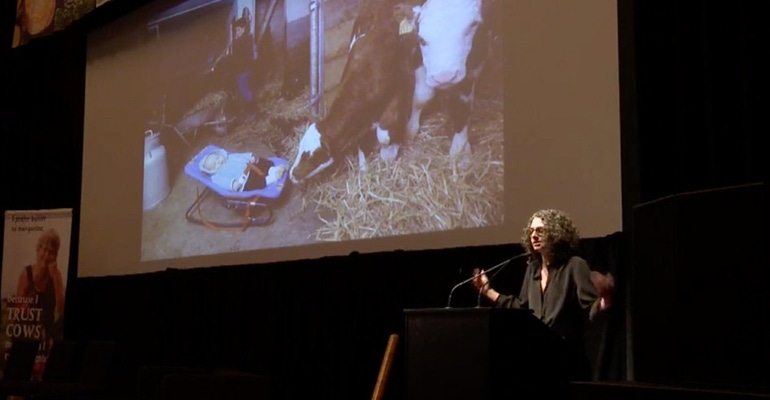A local food system is born of the soil. Here's how to tap the concept to weave a web of success.

Listen to your mother, Mother Nature.
Really listen.
Model her.
Attend to her.
These eco thoughts serve more than the ecosystem; they power economies.
Farmers, food producers, retailers, investors and Slow Money supporters gathered this week in Boulder, Colorado, for SOIL 2017, a conference for seeding thought and business in small ways that produce great social, environmental and economic results.
The event also marked the launch of Woody Tasch’s new book of the same name in which the Slow Money founder explores the concept of “nurture capital.” In the book, he offers this definition: billions of dollars a year from local individuals to businesses that are preserving and restoring the health of the land and the community.
“There’s no place better to splice nature and nurture than in local food systems,” he told SOIL 2017 attendees.
Here are a few ways that emerged during the conference.
Invest in a way that nourishes soil.
Physician, author and professor Daphne Miller presented an insightful exploration of soil as a farm organ and its connection to the human body. She asked: Do your investments add to the mega organ that is soil?
As the foundation of our food system, soil matters to every business in the natural products industry. Each natural-business person can consider this as he or she creates, sources and sells products, whether through wholesale distribution channels or via store shelves from storekeepers to consumers.
Share the soil-health connection.
It’s practically accepted knowledge that today’s carrot doesn’t have the same nutrients a carrot did decades ago. But the soil-health connection goes much deeper than this simple soundbite. Share the studies Miller cites. Spread the knowledge learned in Rodale Institute research. Really educate.
Understand the role soil plays in certifications such as organic and non-GMO. Learn about the rising regenerative agriculture movement and the certifications emerging to support and signify it on packaged products. (Watch newhope.com as we cover these new food labels.)
Nurture—consciously—the local food economy.
Everyone, it seems, has adopted local as a good-food choice. Often, buyers seek local first, even more so than organic and non-GMO.
But do consumers, and more importantly, retailers connect with the economy of the local food ecosphere?
This eco-philosophy means supporting not just local farmers and food producers but championing those who rebuild the soil and working together to build a local web that supports businesses (and workers) along the supply chain.
These three concepts mirror so much that the natural products industry represents and practices—mostly. But when rooted in the soil, these ideas take on new and more important meaning for both nurturing healthy economies and nourishing our communities.
About the Author(s)
You May Also Like




